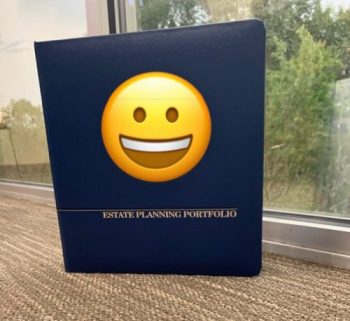How excited do you, or your friends, get when talking about home improvement projects, a…

Will I Lose My Home?
Will I Lose My Home?
Home ownership is the American Dream. We work hard during our lives to own a home, and its often our most valuable and significant asset. So, when health begins to fail and the need for long-term care arises, we often get this fear-filled question from clients: will they take away my home?
The enormous and on-going costs of nursing-home care are astronomical. Costs range from $7,500.00 to $10,000.00 per month depending on location. There are approximately 75 million recipients of federal and state Medicaid programs. 25% of those recipients are receiving long-term care assistance. To recoup some of those high costs, Medicaid rules permit states to take the value of a recipient’s home to reimburse the program for funds it has expended. However, there are some caveats to this rule.
Because a home is such an essential family possession, the rules treat a primary residence as exempt – that is, its value is not counted as available to pay for nursing-home care from the home-owner’s pocket, when they apply for Medicaid assistance. The home is protected, to a certain extent, for the benefit of Medicaid recipients and their close relatives.
That protection can be lost, however. The value of the house can be counted against a Medicaid applicant, and benefits denied or curtailed, when:
* A home-owner has no living spouse or minor, disabled or blind dependents, and
* The owner moves into a facility permanently, with no intent to return home, or
* The owner dies.
In other words, if the owner expresses the intent to return home, and the owner’s spouse or disabled or blind child live in the home, the home will not be counted against the owner for Medicaid-eligibility purposes.
Once the owner passes however, the state may place a lien on the home to secure reimbursement of the value of the Medicaid services the owner received. This lien makes it impossible to sell the home or refinance a mortgage, without first paying the state what it may be owed.
In the practice of elder law, there are ways to protect homes from this kind of attachment. If you have planned at least five years before you anticipate needing nursing-home care, your home (or its value) can be preserved from Medicaid recapture.
Ordinarily, Medicaid heavily penalizes giving away property, but there is one exception if a child moves into the home and cares for an ailing parent. The child must do so for two years, permitting the parent to stay home and out of a nursing home. In this scenario, the house can then be given as a gift to that child without any Medicaid penalty or disqualification.
There are also other strategies available. The home can be given to a disabled child without penalty or disqualification. Or, you might keep the right to live in the house for your lifetime and deed the remainder interest to others, who will then own the house after you pass. However, it is important to remember that each strategy comes with risks that must be fully explored before determining the correct one.
An overall plan that is tailored to suit each individual, and to meet as many contingencies as possible requires juggling a number of puzzle-pieces. Every individual and family will have different circumstances and need a plan to fit their specific needs. There is not one cookie-cutter solution. Timing is important, but as always, the key is to plan before you or your spouse may need nursing-home care.





